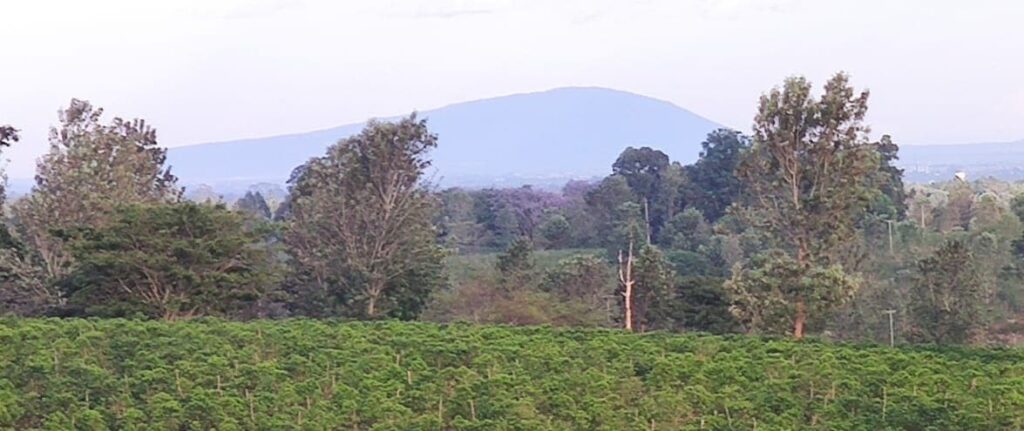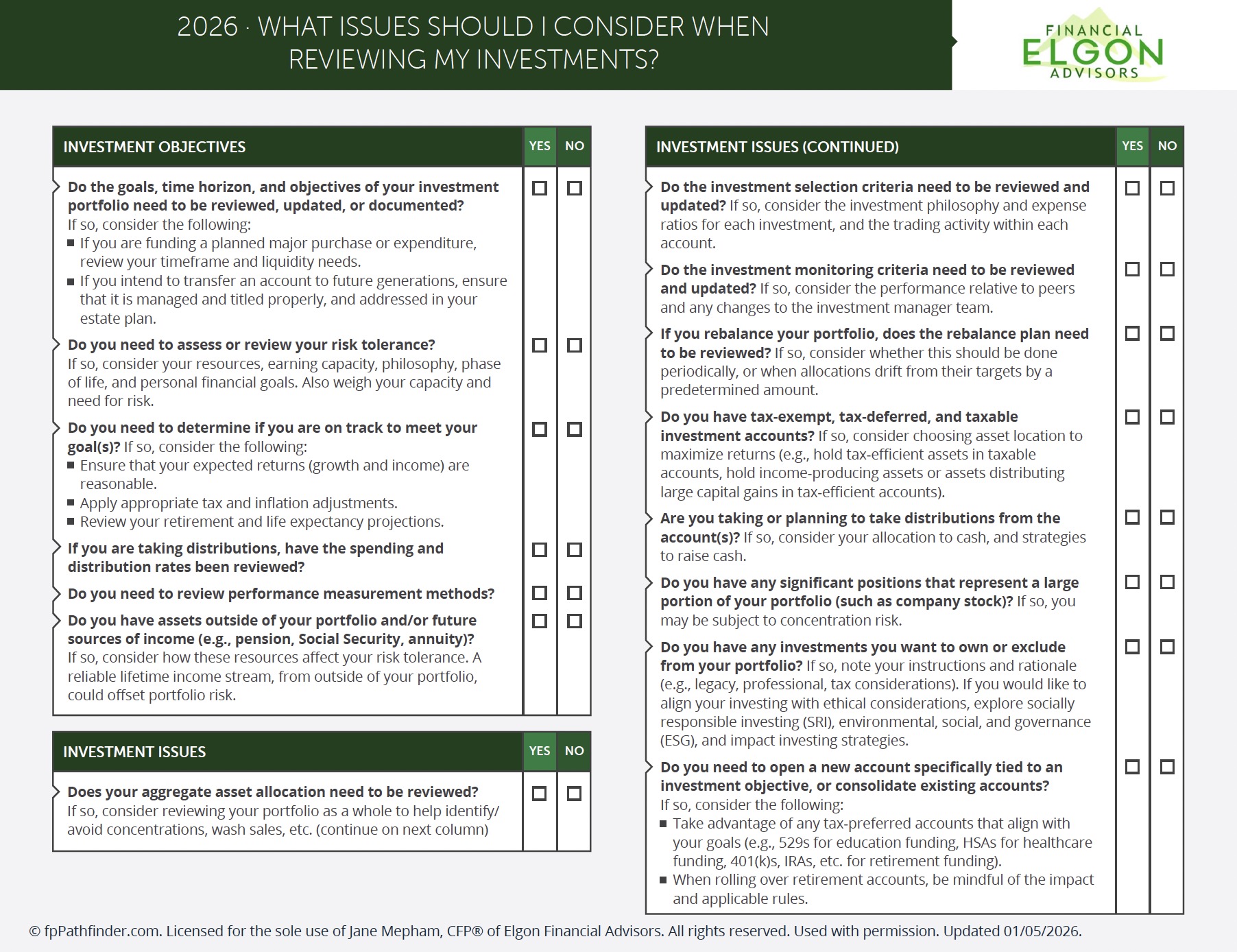I had a chance to interview with the Authority’s Magazine for their series on immigrant success stories, a while back. This is the interview as published on the site.
Growing up
Thank you so much for joining us in this interview series! Can you tell us the story of how you grew up?.
I grew up in a small village in Kenya about 30km outside the capital city of Nairobi. My dad worked in the city, while my mom stayed home with the kids — all 5 of us. It was a typical Kenyan life. Every day we walked to the primary school, which was about 20 or 25 minutes, but other kids had to walk for close to an hour each way. We had to be in school at 7 and didn’t go home until 5. School was a lot of fun, we got to hang out with friends and compete with them in everything from sports to academics. The motto of the school — “Discipline and Hard Work Pays” perfectly describes the system we were in.
It was very, very competitive and only so many kids made it to the next level of schooling, after sitting a national exam at each stage.
We had a lot of homework which had to be completed in between all the other chores we had at home, since everything from laundry to dishes was done by hand. In addition, we also had to help with cleaning the house, taking care of the younger kids, working the garden, taking care of the animals (cows, pigs, chickens), so busy throughout with little time for getting into trouble. It was the perfect environment to learn what it means to be organized and be disciplined in life.
I attended one of the best national girls boarding school in Kenya, which opened my eyes to what can be achieved when kids are given the right opportunity, the right tools and exposed to the right environment. It was a public school, that admitted the top girls from all over the country, regardless of their ability to pay the tuition and fees. This meant having kids from different social economic backgrounds, as well as different tribes (over 42 tribes in Kenya) all united by their academic dreams and achievements.
It was at this school, where I finally learnt how to play tennis (as the school had the facilities) — a sport that has become a critical part of my story.
Morning view from my house.
Choosing to Emigrate
Was there a particular trigger point that made you emigrate to the US? Can you tell us the story?
I was exposed to computers at my high school, and I fell in love with what could be achieved with the machines, based on some of the simple programing work we did. I knew that if I had a chance, I would want to pursue it professionally which meant a degree in computer science.
I was very active in tennis, after training as a coach and umpire, which led to some great travelling opportunities and a chance to interact with folks from different countries, all pursuing their tennis dreams.
This made me appreciate what it means to pursue your dreams, and not stopping until you get there. I recall after one such trip to Europe, thinking all those tennis players could be me, just pursing a different thing.
Since computer science was my dream, and I figured the US was the best destination for education, I decided to pursue it with everything I had.
My parents believe education was and still is the best gift a parent can give a child, especially a girl, and so they were very supportive of any initiatives that would give me an opportunity to pursue my academic dreams.
Coming to America
Can you tell us the story of how you came to the USA? What was that experience like?
Coming to the US for me was a family and community project/experience. My town, friends and family came together and fundraised to help me raise the money, I needed for the air ticket, and some of the college tuition.
Once I was ready to leave, my family bought me a one-way ticket to Boston and the whole town came to the airport to see me off.
Starting life in the country was a huge culture shock, especially when the stories that I had heard did not match reality. There were so many times I seriously considered giving up but since I had used my one-way ticket, that was not an option.
I knew I had to make it and not let my family down. What really helped me was meeting a few other students who had the same mind set…we believed we had the best opportunities in this country we just needed to understand the system and focus on our goals.
The first day it snowed, I was so excited to play in the snow, but I did not realize just how cold it could get it. I still don’t like it!
I did my best to adjust, made lots of friends, figured out where I could find fellow immigrants, found a church I liked, joined the tennis team, and slowly over time, this country has become my home. I learned how to drive (by swapping driving lessons for tennis lessons) and bought an old used car which opened more possibilities for me.
Settling and Those That Helped
Is there a particular person who you are grateful towards who helped make the move more manageable? Can you share a story?
Something I try to pass on to new immigrants is that the first people you interact with in a new country can make or break you. So be careful before you let your guard down.
My story would not have been possible without the help of the people that I have met over the years, who have generously given me their time as mentors, friends, business colleagues and have been very willing to help me, but two cases from my first days in the country stand out.
The first or second week after I got here, I run into one of my old high school mates from Kenya, who was a student at the same college and had been here for a couple years.
She was very, very focused on her studies and, as she revealed to me later, “she saw a younger version of herself in me in terms of my drive and determination” and there was no way she would have let me fail. She literally took me under her wing, become my sounding board for just about everything I needed to do. She remains a great friend to this day. I credit her, together with a few other people, with helping me maintain my sanity in those early days.
The other person that helped me tremendously was one of my Computer Science professors who believed in me and my somewhat crazy plan to complete my program in less than 4 years, which meant extra night and summer classes.
When I explained to her what I was looking to do, she was more than happy to work with me on a plan that would allow me to cut down on my school years. We revised the plan on a regular basis, with her pointing out what changes I needed to make. I credit a lot of my college success to her.
This is probably one of the hallmarks of the immigrant’s attitude in life. We are willing to work extremely hard because we consider being in the US a great opportunity.
Life Today – EFA
So how are things going today?
I am very grateful for the opportunities I have had. I completed my undergraduate degree, got a job as a software QA Engineer at a local company that sponsored my H-1B visa.
After about a year and a half, I switched jobs again to another tech company that ended up filing for my permanent residency. I love to learn, so along the way, I also made sure, I completed my graduate degree in information technology.
I ended up staying at that company for close to 20 years. I worked in different areas like database administration, development, security, project management all the way to managing global technical teams.
With every promotion/change, I knew I wanted to figure out a way to help people achieve their version of the American dream by helping them align their money with their values and getting that money to work for them.
Over the years, I have volunteered at a couple places, including my local church teaching financial literacy classes, and it’s been so rewarding to be there for the “aha” moment when somebody finally understands that it’s possible to get control of their financial resources.
A couple of years ago, my family moved to Texas and, as part of that move, I found myself contemplating the issue of what “I want to do when I grow up”. I met some amazing people, who encouraged me to pursue my dreams. I finally decided to jump into the personal finance industry full time and change careers.
I went back to school, completed my CFP (Certified Financial Planner) program, passed all the required exams, worked for a while at a national company, but still felt the best way to do this was to start my own firm, and serve my fellow immigrants the way I would like to be served. This is what led to start Elgon Financial Advisors.
Using My Success For Good
How have you used your success to bring goodness to the world?
My firm only works with immigrants, allowing my clients to work with a culturally sensitive advisor. Having gone through the whole journey as an immigrant who came to this country as a grown-up, I understand the financial struggles they are going through, as well as the cultural nuances.
I enjoy teaching, which compliments my firm’s goals. I take advantage of every moment I’m able to teach, whether it’s on the tennis court, the classroom or in my local church to break down complex financial concepts into something easy to understand.
Doing more on financial literacy with kids, especially immigrant kids, is something I am hoping to expand on over the next couple years.
Part of being an immigrant is understanding the struggles others are going through and being willing to help. I am involved in community projects back in my home country, especially my village. I am very keen on education and so a lot of the projects I work on have something to do with education and helping the next generation get a firm foundation.
I have been involved in projects building schools, paying fees for kids whose families are not able to help, as well as buying supplies for some of the schools. Together with a few others, we are currently putting a couple kids through school, by paying their tuition on a regular basis. Knowing that I am making a difference in their lives is extremely fulfilling.
Improving the Immigration System
You have first-hand experience with the US immigration system. If you had the power, which three things would you suggest to improve the system?
All visas require a tremendous amount of paperwork, money, and process to stay valid. It’s a process that no immigrant should attempt to complete on their own as a single mistake can jeopardize the whole process. A couple examples that I’ve personally experienced while on different visas
- Getting the H-1B Visa stamped in my passport to allow me to visit my home country was a bit of terrifying experience. This necessitated going to a third country in this case Canada on a single-entry visitor visa to get the process completed. If I went back home and for some reason, I could not get an appointment on time, or I could not get the stamp, then I would have no way of coming back to the US at all. The Canadian option gave me a chance to come back to the country if something went wrong.
- F-1 Visa. The same applies, simplify the process and the paperwork, and give the students more outside opportunities to practice their craft, especially while still in school. A lot of the students that come to the US, are usually among the best in their countries. They are looking to do more with their education, for example research outside campus, but they are typically limited to a few hours on campus. The US should be aiming to keep those students in the country after their graduate, and a big part of this is the type of opportunities they’ll have throughout.
The green card process can be very long and complicated. The quota system also means some people have no chance of getting it, regardless of their qualifications. Simplify the process, cut down the amount of time it takes to get approved and give more weight to certain skills, where appropriate.
H-4 EAD. This work authorization is a huge relief for families here on H-1B Visas. There has been talk of getting rid of it, but instead we should expand it to include more people on this dependent visa and, like all other visas, please simplify the process!
5 Keys to Achieving the American Dream
Can you share “5 keys to achieving the American dream” that others can learn from you? Please share a story or example for each.
- Define your ‘Prime Directive” on day one, loosely based on Star Trek. Decide from day one, the one goal you want to achieve in this country. This goal needs to be so critical to you, that you won’t let anything, or anybody interfere with its pursuit. That becomes your guiding principle and helps you avoid distractions especially when time is off essence.
When I first joined college and learned what the process was to have a shot at becoming a permanent resident, I planned my whole college experience and my life around this goal. I learned what I needed to do to graduate as soon as I could, with the best grades, what classes and what order I needed to take them in and what experiences I needed to gain.
I believe this focus and planning had a lot to do with my earlier success. Luck does sometimes play a role with where we end up but planning and focus is key. With every goal achieved, it becomes easier to set new goals and new timelines.
- Embrace your uniqueness, your difference, and your worldview, it’s a hidden strength. Take advantage of your unique background and experiences and use it them to make the most of your situation. A simple example, there are a couple things, I don’t like about the education system.
Since I went through a different education experience and came out okay, I know there is another way of doing things that can work. I am able to draw on these experiences when I talk with my kids, and others in the community and hopefully this encourages them to think outside the box.
- Become a member of your local community, integrate, and socialize with native born Americans. When we first get here, we all tend to want to congregate with our own kind, which simply means folks from our countries. There are local hangouts, communities, restaurants, places of worship, etc., where the mother-tongue is the language of communication, the entertainment and the food is straight from the home country. It’s very comforting to be understood right away, to make a joke and folks get it, but we limit ourselves if we make this the only groups we hang out with.
Instead, I’ll encourage folks to reach out and start integrating with different people in the community who are native born as well as people born in other countries right away. It gives you another perspective.
In the past my friends have joked that our house could be the United States of America, as we have made a very conscious decision to be this diverse. It is more rewarding and gives us even more exposure to different ways of doing life — it opens your mind to more possibilities.
My many interactions with immigrants from different countries, as well as native born Americans, is what made me realize that there was a need for an investment firm that could cater to the unique needs of immigrants.
- Learn everything you can about the immigration system. When I first started out, there wasn’t as much information online as we have today, so I talked to everyone from my fellow immigrants to the international office folks to learn everything I could about the visa I was on. My goal was twofold — figure out what I needed to do to not violate my legal status and figure out a path to permanent residency. It worked for me.
- Learn everything you can about personal finance. This is so key to not only succeed but thrive. Everything revolves around personal finances and we are forced to make decisions on these items almost from day one. Some of the issues have far reaching consequences. We tend to rely on the first friends that we make here (most likely from our countries), and so there is a very high probability of getting the wrong input. I knew enough to get by, for example on things like budgeting, buying my first car (cash deal), but very little on taxes, investing, credit history and the like. I made it through school, but when I got my first professional job and had to do something with my 401(k) plan, I was completely paralyzed, and that’s what got me started down the path that I’m currently on.
Why I’m Optimistic About the Future of the U.S.
We know that the US needs improvement. But are there 3 things that make you optimistic about the US’s future?.
- The US is still one of the few countries where an immigrant can literally start from zero and, within one generation, have enough funds to set up their family for the rest of their lives. There are a lot of examples where this is the case and despite all the issues that face immigrants, this one fact has not changed.
- The last couple of years there has been an awakening to the realities of what life truly means for minorities in the US. There has been more willingness to talk about issues as they exist and to acknowledge that it’s not rosy for everyone and that there are systemic issues that need to be addressed. As a minority, I am excited about the possibilities of where this country is headed. We have a long way to go, but we’ve taken a lot of initial steps.
- The US continues to be a land where people obey the laws generally. Daily, everybody knows what they need to do to stay on the right side of the law and people generally want to do good. There are a few bad apples, but the fact that everybody is still considered innocent until proven guilty gives me a lot of hope.
We are very blessed that some of the biggest names in Business, VC funding, Sports, and Entertainment read this column. Is there a person in the world, or in the US whom you would love to have a private breakfast or lunch with, and why? He or she might see this, especially if we tag them. 🙂
Trevor Noah — I love his way of looking at life through different lenses in a way that’s so funny and makes you think at the same time. He comes across as being very humble and very appreciative of what he has. I would love to talk to him about his immigrant story (the parts that he hasn’t done in public), as well as his love of education and the work his foundation is doing on the same.
Serena — I admire her grit and determination in life and the discipline it takes to get to where she is in life, based on where she started from. I would love to talk about Serena Ventures, and the work she is doing there with her team, with investing in early startup companies, using her platform to give this companies a boost, they otherwise would not have. What’s exciting is that I can actually use one of the companies, she is supporting to send money to my family in Kenya and a few other countries in Africa.
What is the best way our readers can further follow your work online?
Through my firm’s blog at https://elgonfa.com/blog/
Twitter @elgonfinancial
To continue being a part of the conversation on financial issues that affect immigrants subscribe to Elgon’s blog posts by email here.
Read the original article at The Authority Magazine
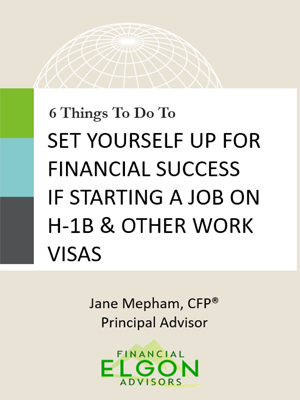
6 Things to Do
When Starting A Job on H-1B Visa
You are starting a new job on a work visa, there are some critical things, that will set up for financial success in the first 3-6 months. Download the free guide below for the detailed list!
We never spam. By signing up you’ll also receive access to future resources right to your inbox.
Disclaimer: This article is provided for general information and illustration purposes only. Nothing contained in the material constitutes tax advice, a recommendation for the purchase or sale of any security, investment advisory services, or legal advice. I encourage you to consult a financial planner, accountant, and/or legal counsel for advice specific to your situation. Reproduction of this material is prohibited without written permission from Jane Mepham and all rights are reserved. Read the full disclaimer here.
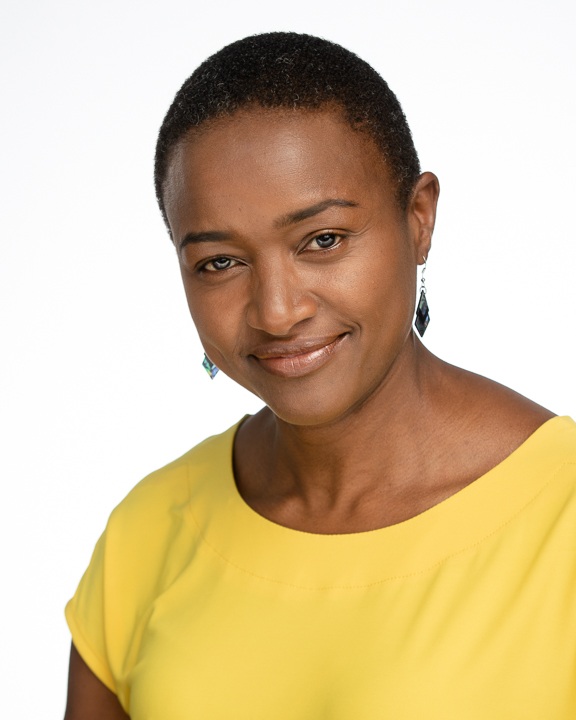
Recent Articles
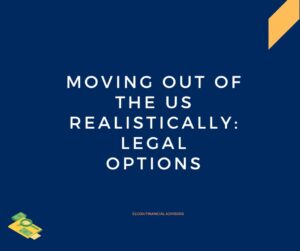
Moving Out Of The US Realistically
The desire to leave the US is strong, the execution and the mechanics are a different story. Leaving the US means, having a destination where you can stay long term legally and be able to support yourself. In this post, we detail practical ways that will allow to move to another country. But the actual move is different post.
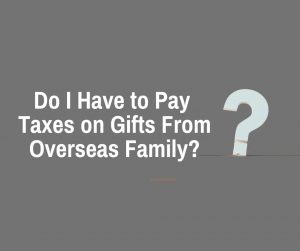
Do I Pay Tax On Gifts From Family Overseas?
If I receive gifts from overseas, what taxes am liable for?
What are the tax considerations for receiving gifts from overseas families when you live in the US and you are a tax resident?. Updated extensively with 2026 data.
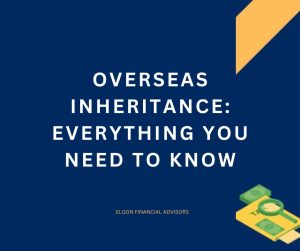
Overseas Inheritance: Everything You Need To Know
Receiving an inheritance from abroad can get complicated quickly. The



